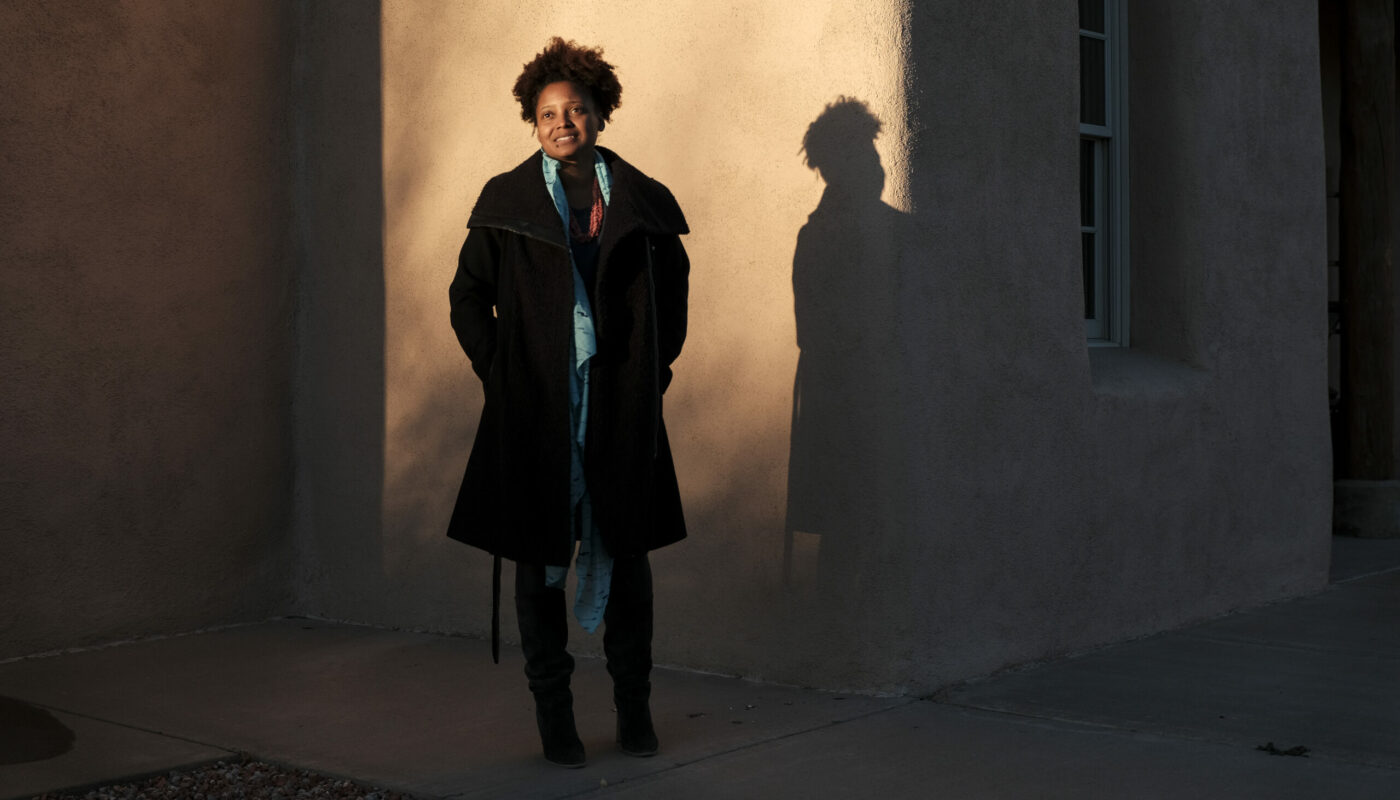
“I always think of the universe as being so far away, but we’re in it,” said former Poet Laureate and Harvard poetry professor Tracy K. Smith, following her student Q&A session in Ruff Learning Center on Oct. 18.
The session was a precursor to Smith’s poetry reading later that night in Huntington Recital Hall as part of the university’s Gerhold lecture series on the humanities.
Smith is soft-spoken and possesses an immediate air of tranquility about her. She is not one to rush her words, answers or thoughts. She even says herself, “I’m someone who loves quiet things. Even in the silence of conversation, there’s something happening there.”
Where others may scream into the void, Smith speaks to it gently, marveling at it rather than fearing.
In her 2011 Pulitzer Prize winning book of poetry, “Life on Mars,” Smith explores family, the cosmos, the afterlife and life on Earth. For Smith, all of these things are intertwined. Everything that exists, exists in relation to one another.
In lines 47-51 of her poem from “Life on Mars,” “My God, It’s Full of Stars,” she writes:
Perhaps the great error is believing we’re alone,
That the others have come and gone—a momentary blip—
When all along, space might be choc-full of traffic,
Bursting at the seams with energy we neither feel
To Smith, voices keep coming up from beyond the mortal coil. Our souls do not die with our bodies. Space and time are not separate from us, they are all around us.
“I feel like poetry is something that is attached to something like a ‘universal law,’ if there is such a thing,” Smith said. “I think my imagination is invested in what we really are, not humans, something bigger,” she adds.
Smith’s work explores death in no specific terms, but in a way that is open to whatever the universe has in store. In lines 11-15 of “My God, It’s Full of Stars,” Smith explores this further:
Some like to imagine
A cosmic mother watching through a spray of stars,
Mouthing yes, yes as we toddle toward the light,
Biting her lip if we teeter at some ledge. Longing
To sweep us to her breast.
Her work explores time as well as space. She views the lives that existed before ours as voices that still speak to us in many ways.
Her 2021 poetry collection, titled “Such Color,” explores the beauty of existence through beauty and hardships that everyone experiences, through a uniquely African-American lens.
Smith writes in her “Such Color” poem “Riot,” “The ancestors live upstairs in a room without chairs./ When I visit, they welcome me without words,” (lines 27-28). Her poems are living and breathing with the voices of the dead that Smith feels so close to.
Smith has composed poems with lines borrowed from old Civil War letters, she has written on birth, dance and the joy and pain of life through the ages. Lives that have come and gone still speak out through her work.
“A lot of these poems helped build a framework that helped console me in grief,” Smith said. “But that also gave me a different energy in life.”
Whether exploring the cosmos or time long past, to Smith, poetry is about existence. Listening to her speak and reading her work is a pleasure, as well as an exploration into grief, life and death.
Her upcoming personal manifesto, “To Free the Captives: A Plea for the American Soul,” comes out Nov. 7 and hopes to deal with the issues of the past, humanity and striving towards something better we can all reach together.
As Smith puts it once again in “Riot,” “Life is within our grasp,” (line 24). Throughout all the pain and mystery of existence, life is within our grasp.
Tracy K. Smith is a poet that is needed now more than ever. Her hope, her genuineness and her love for the world is expressed through each line. Poetry is how Smith displays her strength, and, because of this, the power of art is never diminished, even in times of violence and uncertainty.

